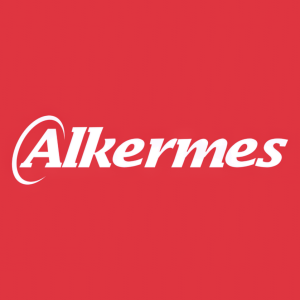Alkermes Presents Data From Phase 1b Study of ALKS 2680 Demonstrating Improved Wakefulness in Patients With Narcolepsy Type 1 at SLEEP 2024
Rhea-AI Summary
Alkermes revealed data from a Phase 1b study of ALKS 2680, a novel orexin 2 receptor agonist, showing significant improvements in wakefulness in patients with narcolepsy type 1 (NT1). The study, presented at SLEEP 2024, demonstrated that ALKS 2680 significantly improved mean sleep latency compared to placebo across all doses. The drug was well-tolerated, with most adverse events being mild and transient. Additionally, the ongoing Phase 2 Vibrance-1 study will further evaluate the efficacy and safety of ALKS 2680 in NT1 patients. Initial results are encouraging, highlighting the potential of ALKS 2680 to address unmet needs in NT1 treatment.
Positive
- ALKS 2680 showed significant improvement in mean sleep latency at all doses (up to 34 minutes).
- Clinically meaningful dose-dependent improvements in self-reported alertness on the Karolinska Sleepiness Scale.
- ALKS 2680 was generally well-tolerated, with most adverse events being mild and transient.
- No severe adverse events or discontinuations due to adverse events were reported.
- No clinically meaningful changes in laboratory values, vital signs, or ECG parameters.
Negative
- Only a small sample size (10 patients) was used in the NT1 cohort.
- The study is still in early stages, with results from the ongoing Phase 2 Vibrance-1 study pending.
News Market Reaction 1 Alert
On the day this news was published, ALKS gained 2.80%, reflecting a moderate positive market reaction.
Data tracked by StockTitan Argus on the day of publication.
— Orexin 2 Receptor Agonist ALKS 2680 Demonstrated Clinically Meaningful and Statistically Significant Improvements from Baseline in Mean Sleep Latency Compared to Placebo at All Doses Tested —
— ALKS 2680 Was Generally Well Tolerated at All Doses Tested —
— Vibrance-1 Phase 2 Study of ALKS 2680 in Patients With Narcolepsy Type 1 Is Ongoing —
The phase 1b study evaluated the safety, tolerability, pharmacokinetics and pharmacodynamics of ALKS 2680 via once-daily, single, oral administration. Ten patients with NT1 were randomized1 to one of four crossover sequences in which each participant received 1 mg, 3 mg and 8 mg of ALKS 2680, and placebo, with washout periods between each treatment. Initial results from the first four patients in this NT1 cohort were previously presented at the 2023 World Sleep Congress.
"Data from this phase 1b study provide evidence of a significant treatment effect of single doses of ALKS 2680 in patients with narcolepsy type 1. In addition, patients' self-reported measures of alertness further support continued clinical development of this investigational treatment, which has the potential to help address significant unmet needs for people living with excessive daytime sleepiness associated with narcolepsy," said Ron Grunstein, M.D., Ph.D., Head of Sleep and Circadian Research at the Woolcock Institute of Medical Research.
Data highlights from the SLEEP poster presentation (Abstract ID 1323; Poster board 423) include:
Mean Sleep Latency Over 8 Hours:
- In patients with NT1, treatment with ALKS 2680 demonstrated improved wakefulness compared to placebo at all doses tested, with a clear dose response.
- Treatment with ALKS 2680 resulted in statistically significant and clinically meaningful improvements in mean sleep latency on the Maintenance of Wakefulness Test (MWT), with a mean change from baseline versus placebo of 18.4 minutes at the 1 mg dose (p=0.0002), 22.6 minutes at the 3 mg dose (p=0.0001), and 34.0 minutes at the 8 mg dose (p≤0.0001) (least squares mean difference). Placebo treatment resulted in an approximately 1.4 minute reduction in mean sleep latency from baseline. Prior to treatment with ALKS 2680, these patients had a mean sleep latency on the MWT of approximately six minutes at baseline.2
- At the 3 mg and 8 mg doses, the observed mean MWT scores over an eight-hour period post-dose were within the reported normal range for healthy individuals.3
Patient-Reported Alertness on the Karolinska Sleepiness Scale (KSS):
- The KSS is a subjective measure of self-reported alertness over the past five minutes, using a nine-point scale (with 1 being "extremely alert"; 9 being "extremely sleepy"; and 5 being "neither alert nor sleepy"). Change from baseline on KSS was an exploratory endpoint.
- ALKS 2680 demonstrated clinically meaningful, dose-dependent improvements in self-reported alertness in patients with NT1. The average self-reported score at baseline was approximately 7. ALKS 2680 showed improvements of 2 to 3 points in self-reported alertness between 1 and 8 hours, indicating clinically meaningful improvements (p<0.001 at all dose levels vs. placebo).
Safety:
- ALKS 2680 was generally well tolerated across all doses tested in patients with NT1. Most treatment-emergent adverse events (TEAEs) were mild in severity, transient and self-resolving (with one moderate case of nausea that resolved with food intake). There were no severe adverse events (AEs). AEs observed in >1 patient and deemed to be related to study drug were insomnia,4 pollakiuria, salivary hypersecretion, decreased appetite, dizziness and nausea.
- There were no serious AEs (SAEs) reported or TEAEs leading to study drug discontinuation in patients with NT1. There were no drug-related, treatment-emergent, clinically meaningful changes from baseline in laboratory values at any dose. Additionally, no cardiovascular safety signals were identified in vital signs or electrocardiogram (ECG) parameters.
"We're encouraged by the results of this proof-of-concept study of ALKS 2680 in patients with narcolepsy type 1. The clear dose response reinforced our design principles for this program, and we are looking forward to further characterizing the efficacy and safety of ALKS 2680 in patients with narcolepsy type 1 in the ongoing Vibrance-1 phase 2 study," said Craig Hopkinson, M.D., Chief Medical Officer and Executive Vice President, Research & Development at Alkermes.
About the ALKS 2680 Phase 1 Study
The phase 1 study for ALKS 2680 included single-ascending dose and multiple-ascending dose evaluations in healthy volunteers, and double-blind, crossover treatment in patients with narcolepsy type 1 (NT1), narcolepsy type 2 (NT2) and idiopathic hypersomnia (IH).
In the healthy volunteer phase of the study, each cohort included eight participants, six of whom were randomized to receive ALKS 2680 and two of whom received placebo. In the single-dose portion, ALKS 2680 was dosed from 1 mg to 50 mg. In the multiple-dose portion, participants received single daily doses of ALKS 2680 ranging from 3 mg to 25 mg strengths for up to 10 days. The objectives of this part of the study were to assess ALKS 2680's safety, tolerability, pharmacokinetics (PK) and pharmacodynamics.
The phase 1b proof-of-concept part of the study enrolled patients with NT1 (n=10), NT2 (n=9) or IH (n=8). Following an initial two-week washout period of existing medications, patients received single doses of three active dose levels of ALKS 2680 (1 mg, 3 mg and 8 mg for NT1; 5 mg, 12 mg and 25 mg for NT2 and IH) and placebo in a randomized sequence in a four-way crossover design, with washout periods between each treatment in the sequence. The objectives were to assess safety and tolerability, and changes from baseline in average sleep latency, as measured through the Maintenance of Wakefulness Test (MWT) at each crossover period, along with plasma PK, and patient-reported measures of alertness on the Karolinska Sleepiness Scale (KSS).
About ALKS 2680
ALKS 2680 is a novel, investigational, oral, selective orexin 2 receptor (OX2R) agonist in development as a once-daily treatment for narcolepsy. Orexin neuropeptides are important regulators of the sleep/wake cycle through OX2R activation, and loss of orexinergic neurons in the brain is associated with excessive daytime sleepiness and cataplexy in narcolepsy.5 ALKS 2680 was designed to address the underlying pathology of narcolepsy with the goal of improving duration of wakefulness and providing cataplexy control. Once-daily oral administration of ALKS 2680 was previously evaluated in a phase 1 study in healthy volunteers and people living with narcolepsy type 1, narcolepsy type 2 and idiopathic hypersomnia and is currently being evaluated in the Vibrance-1 phase 2 study in patients with narcolepsy type 1.
About the Vibrance-1 Study
Vibrance-1 is a phase 2, randomized, double-blind, dose-range-finding study evaluating the safety and efficacy of ALKS 2680 compared to placebo in patients with narcolepsy type 1. More information can be found at www.clinicaltrials.gov (identifier: NCT06358950) and www.vibrancestudies.com (for
About Alkermes plc
Alkermes plc is a global biopharmaceutical company that seeks to develop innovative medicines in the field of neuroscience. The company has a portfolio of proprietary commercial products for the treatment of alcohol dependence, opioid dependence, schizophrenia and bipolar I disorder, and a pipeline of clinical and preclinical candidates in development for neurological disorders, including narcolepsy. Headquartered in
Note Regarding Forward-Looking Statements
Certain statements set forth in this press release constitute "forward-looking statements" within the meaning of the Private Securities Litigation Reform Act of 1995, as amended, including, but not limited to, statements concerning clinical development activities for, and the potential therapeutic and commercial value of, ALKS 2680 for the treatment of narcolepsy. The company cautions that forward-looking statements are inherently uncertain. Although the company believes that such statements are based on reasonable assumptions within the bounds of its knowledge of its business and operations, the forward-looking statements are neither promises nor guarantees and they are necessarily subject to a high degree of uncertainty and risk. Actual performance and results may differ materially from those expressed or implied in the forward-looking statements due to various risks and uncertainties. These risks and uncertainties include, among others: whether ALKS 2680 could be shown to be ineffective or unsafe; whether preclinical and initial clinical results for ALKS 2680 will be predictive of results of future clinical studies or real-world results; whether future clinical trials or future stages of ongoing clinical trials for ALKS 2680 will be initiated or completed on time or at all; and those risks and uncertainties described under the heading "Risk Factors" in the company's Annual Report on Form 10-K for the year ended Dec. 31, 2023 and in subsequent filings made by the company with the U.S. Securities and Exchange Commission (SEC), which are available on the SEC's website at www.sec.gov. Existing and prospective investors are cautioned not to place undue reliance on these forward-looking statements, which speak only as of the date hereof. Except as required by law, the company disclaims any intention or responsibility for updating or revising any forward-looking statements contained in this press release.
1 Nine of 10 participants completed all 4-way randomized crossover periods. One participant withdrew from the study after receiving the initial ALKS 2680 dose due to poor venous access and inability to undergo further blood draws.
2 Patients with NT1 in the phase 1b study had baseline sleep latencies ranging from one to 15 minutes.
3 Krahn LE, Arand DL, Avidan AY, et al. Recommended protocols for the Multiple Sleep Latency Test and the Maintenance of Wakefulness Test in adults: guidance from the American Academy of Sleep Medicine. J Clin Sleep Med. 2021;17(12):2489–2498.
4 Insomnia includes TEAE terms of insomnia and middle insomnia (i.e., difficulty maintaining sleep).
5 Nagahara T, Saitoh T, Kutsumura N, Irukayama-Tomobe Y, Ogawa Y, Kuroda D, Gouda H, Kumagai H, Fujii H, Yanagisawa M, Nagase H. Design and Synthesis of Non-Peptide, Selective Orexin Receptor 2 Agonists. J Med Chem. 2015 Oct 22;58(20):7931-7. doi: 10.1021/acs.jmedchem.5b00988. Epub 2015 Aug 26. PMID: 26267383.
Alkermes Contacts:
For Investors: Sandy Coombs, +1 781 609 6377
For Media: Gretchen Murphy, +1 781 609 6419
![]() View original content to download multimedia:https://www.prnewswire.com/news-releases/alkermes-presents-data-from-phase-1b-study-of-alks-2680-demonstrating-improved-wakefulness-in-patients-with-narcolepsy-type-1-at-sleep-2024-302161336.html
View original content to download multimedia:https://www.prnewswire.com/news-releases/alkermes-presents-data-from-phase-1b-study-of-alks-2680-demonstrating-improved-wakefulness-in-patients-with-narcolepsy-type-1-at-sleep-2024-302161336.html
SOURCE Alkermes plc








